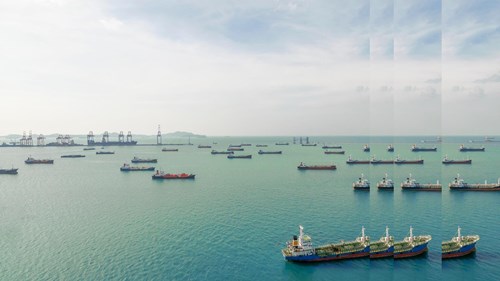German Supply Chain Act update: Federal Office for Economic Affairs and Export Control issues guidance on appropriateness and further information on effectiveness
The German Federal Office for Economic Affairs and Export Control (Bundesamt für Wirtschaft und Ausfuhrkontrolle – the “Federal Office”) has published guidance (only available in German) and further information on the principles of appropriateness and effectiveness (only available in German) according to the requirements of the German Act on Corporate Due Diligence Obligations in Supply Chains (Lieferkettensorgfaltspflichtengesetz – “Supply Chain Act”).
The principle of appropriateness refers to all due diligence obligations and is a basic principle of the Supply Chain Act. In its guidance, the Federal Office explains its understanding of this term and provides practical tips on putting this principle into action while fulfilling due diligence obligations.
Points made in the guidance that are particularly important in practice are summarised below:
Definition of the principle of appropriateness
For its definition of appropriateness, the Federal Office refers to the criteria for appropriateness found in section 3(2) Supply Chain Act and interprets them:
- Type and scope of business activities: Factors to consider here are how complex the characteristics or kind of products or services are; how wide-ranging the variety of services and business relationships are; what the company’s target territory is (regional, national or international); whether there are risks specific to countries, sectors or groups of goods; whether the company is vulnerable to risks (i.e. frequency of risks) and how large the company is (number of employees, turnover, investment and operating capital and production capacity).
- The company’s ability to influence the party causing a violation: This is determined based on the company’s proximity to the risk. If the direct supplier is the party causing the violation, the company’s ability to influence the risk and the supplier depends on factors including the company’s degree of market dominance (e.g. compared to competitors) and its order value in comparison to the direct supplier’s total turnover. The company is to create transparency step by step regarding the direct supplier’s total turnover. One stated indication of a company’s ability to influence the direct supplier is the direct supplier’s willingness to cooperate on improvements.
- The typically expected severity of the violation, irreversibility of the violation and probability that a human-rights or environmental obligation will be violated:
- The severity is to be determined based on the degree of the adverse effects, i.e. the intensity or depth of a violation. Whether a violation is irreversible is also to be taken into account.
- Determining factors for the probability of occurrence of a violation include, whether there have been any violations in the past, but also the causing party’s previous conduct and the existence of possible preventive measures.
- How the company contributes to causation of the risk or violation: Risks in a company’s own sphere of business are usually caused by the company itself. Ways in which companies contribute to causing risks and violations include by permitting, enabling or inciting a particular course of action.
Under the principle of appropriateness, companies are entitled to discretionary leeway on measures to implement their due diligence obligations (i.e. the “how”). The company’s business and risk situations are to help determine the intensity and sequence of measures the company takes to counteract risks.
The Federal Office emphasises that there is no hierarchy regarding the importance of each of the criteria for appropriateness; rather, they are all to be taken into account at the same priority. In general, the company can initially prioritise some that are related to risks assessed as high. However, in doing so, companies must not limit their measures to those players that are able to exert strong influence; instead, they must ultimately deal with all players and risks.
Definition of the principle of effectiveness
Measures are considered effective when they enable to identify and mitigate human-rights and environment-related risks and to prevent, end or minimise the magnitude of violations, see section 4(2) Supply Chain Act.
Interaction of effectiveness and appropriateness
The Federal Office emphasises the close connection between appropriateness and effectiveness. Companies can only choose appropriately from among effective measures. This is intended to ensure that an appropriate measure always effectively mitigates or ends risks or violations. Companies are expected to examine effectiveness and appropriateness to choose measures, thus deploying resources in a manner that achieves their goals.
First impression and shortcomings
The publication touches on fundamental topics that will need to be treated at more depth.
- Restricting the discretionary leeway for action provided by the Supply Chain Act:
A glance at the examples suggests that the Federal Office is restricting and, in some cases, completely closing the discretionary leeway for action provided by the legislator. For example, if a company wishes to make an acquisition in a country and discovers during its risk assessment that children younger than 15 or 13 years of age are employed in the enterprise to be acquired, it must take appropriate preventive and remedial measures. According to the Federal Office, the company will only be deemed to have fulfilled its duty when higher wages are paid, child labour is prohibited and adequate local childcare facilities (i.e. schools) are provided. The company will therefore be obliged to open a local school because the Federal Office considers this an effective and appropriate measure, and it will not be permitted to decide whether paying higher wages, prohibiting child labour, training employees locally and supporting existing schools and/or participating in local initiatives is effective. This gives rise to the impression that the Federal Office is allowing itself to be influenced too much by development aid policies and is shifting governmental responsibilities entirely onto businesses. - Ability to influence:
The Federal Office describes in great detail the ability to influence direct suppliers as the one who causes a risk or violation, but it completely fails to address the ability to influence indirect suppliers. This is not understandable for us, because it is precisely here that the question arises in practice as to whether and how businesses can influence indirect suppliers (with which they have no contractual relationship) at all.
Thus, the impression can arise that the Federal Office is restricting discretionary leeway for action. However, such a tendency would contradict all of the legislator’s statements. In its explanatory memorandum, the legislator emphasises in many places that companies are entitled to broad discretionary leeway to act in regard to all decisions. It remains to be seen what will be left of the leeway granted by the legislator in the actual practice of applying the Supply Chain Act.
Well
informed
Subscribe to our newsletter now to stay up to date on the latest developments.
Subscribe now









